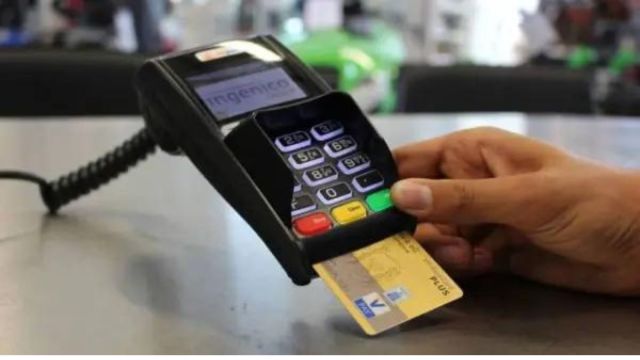Credit card fraud on the rise – 9 tips to use your card safely
Popularity of credit cards has also led to an alarming rise in fraud. The techniques being deployed to commit such frauds are getting more and more sophisticated each day.

Credit cards are one of the most popular methods of payment today. Offering great convenience with benefits, they have transformed how we make payments.
However, their popularity has also led to an alarming rise in fraud, especially related to credit cards which has affected millions of people worldwide. The techniques being deployed to commit such frauds are getting more and more sophisticated each day.
There have already been several incidents of information theft and unauthorised transactions reported in the news which have led to people losing a chunk of their savings. Protecting yourself from such acts of fraud requires awareness and vigilance and here are some tips to help you do that.
1. Never leave your transaction incomplete
When carrying out a transaction using your credit card, ensure that the transaction is complete before you leave. Avoid giving photocopies of both sides of your credit card to anyone. If anyone has your card information, they can use the Card Verification Value (CVV) printed on the back of your card for online transactions.
2. Check your accounts regularly
Monitor your accounts regularly by checking your card statements and transactions for unauthorised activity. If your bank allows it, enable real-time notifications for transactions. This will make it easier to spot suspicious activity and flag the same with the bank immediately.
3. Activate your credit card
If you are a first time credit card user, or have received a new credit card, RBI now mandates activating your credit card within 30 days of receiving. A recent BankBazaar primer titled ‘How to Get Your First Credit Card’ is a guide to help newcomers through their credit card journey and touched upon the importance of credit card activation from a security standpoint.
It notes that activating your card within this given timeframe is a vital process that activates the security features offered by the card, including those for fraud prevention.
4. Don’t share your CVV number
The Card Verification Value (CVV) printed on the reverse of your card is when making online payments. If this number, along with your card’s details is available to anyone, they can easily misuse your card.
5. Use strong passwords and enable two-factor authentication
The growing popularity of online shopping necessitated the need for following robust cybersecurity practices. This includes creating strong and unique passwords using a mix of letters, numbers, and special characters to protect your card or financial accounts from misuse. It is also advisable to enable two-factor authentication wherever possible as an added security layer for transactions.
6. Be cautious of phishing scams
Phishing scams nowadays involve fraudulent emails, texts, or phone calls that appear to be sent from legitimate sources, such as banks or well-known companies. With technological advancements like AI, such communication is made to appear rather convincing, and hence more difficult to suspect.
As a rule of thumb, you should not respond to unsolicited communication (SMS, email, call, etc.) that requests you to provide personal or financial information or directs you to suspicious websites. When in doubt, connect with your bank or card issuer immediately to verify the authenticity of the communication.
7. Use your credit cards at secure websites only
The world of online shopping is vast, and sometimes dangerous. When shopping online, use your credit card only on secure and trusted websites. Make use of a reputable net authentication agency to verify a website’s authenticity before carrying out a transaction or sharing your card details.
8. Secure your devices
If you use your smartphone, tablet, or laptop to carry out online transactions, ensure that your devices are secure. Update your device’s antivirus software to protect against malware and other cyber threats. Regularly updating your computer’s operating system and applications can help patch security vulnerabilities and reduce your risk of cyber attacks. Also, avoid using public Wi-Fi networks for financial transactions, as these can be easily intercepted and your data misused.
9. Set spending alerts and limits
Most credit card companies and banks allow you to set transaction limits and alerts on their mobile apps. These alerts notify you of any transaction that is done using your credit card, including transactions that exceed the specified limit. These notifications can help track your card activity, and take immediate action in case of a suspicious transaction. Also, setting spending limits can help you stick to your budget.
Finally
In addition to the tips shred above, it is also advised that you take all measure to store your card safely. If your card is misplaced or stolen, report it to the issuer immediately.
Typically, banks offer the feature of zero credit card liability in case of such incidents, but the extent of the liability can vary based on when the incident has been reported. Credit cards have much to offer in terms of benefits and convenience, both of which you can enjoy by staying vigilant and using your card carefully.
Adhil Shetty is CEO of BankBazaar.com
Photos



- 01
- 02
- 03
- 04
- 05




























